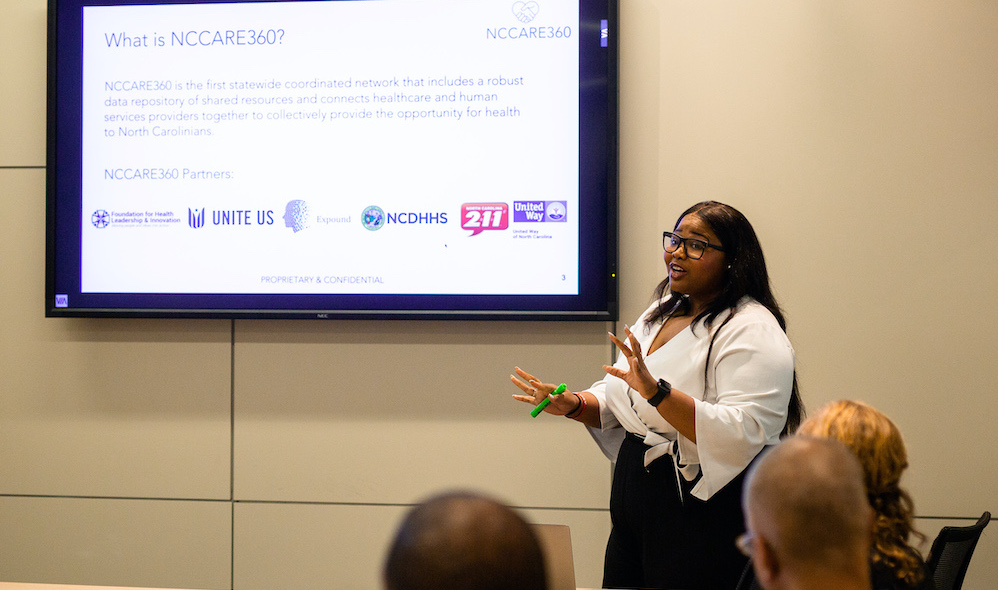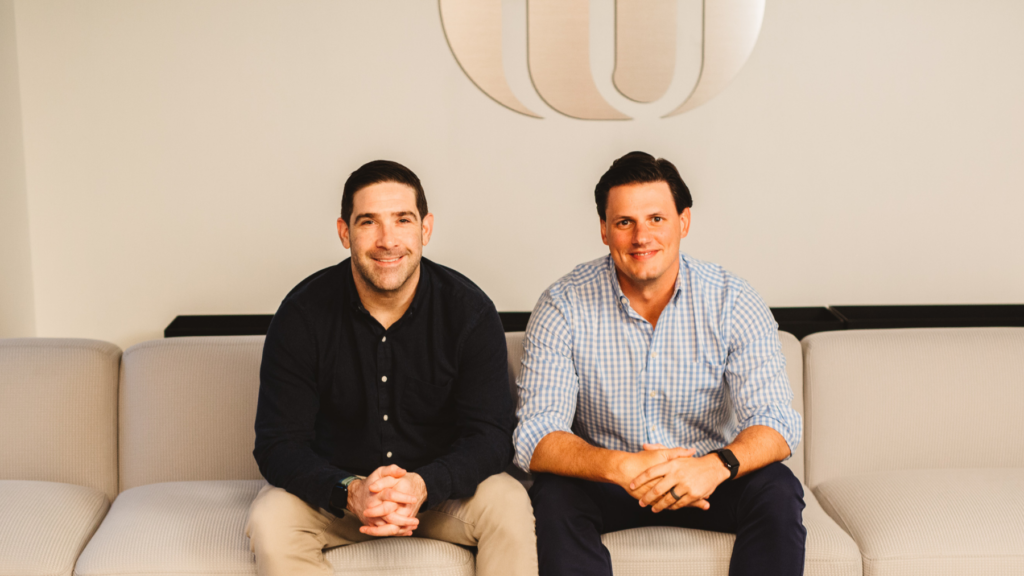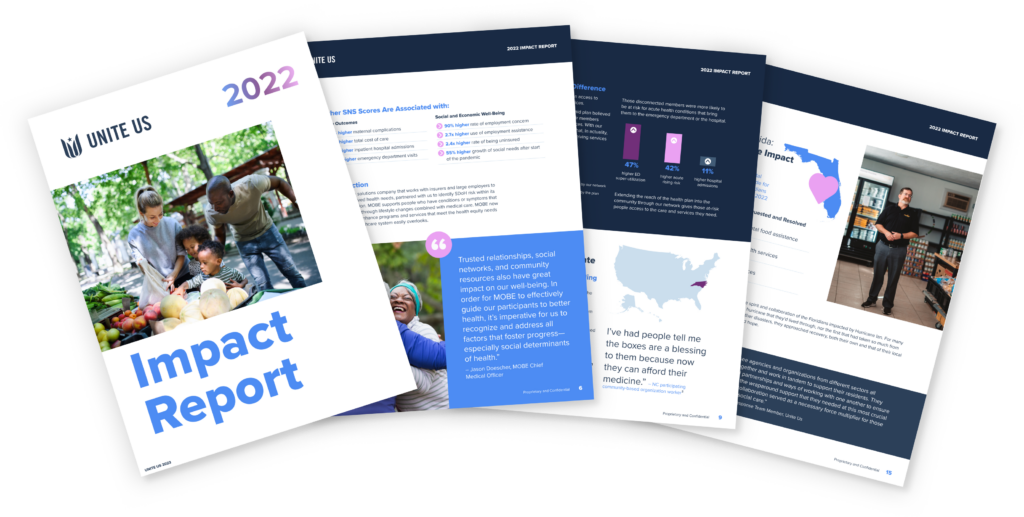
What Does it Take to Transform Care Across an Entire State?
Editor’s Note: In Spring 2019, Unite Us partnered with the Foundation for Health Leadership & Innovation (FHLI) and the North Carolina Department of Health and Human Services (NC DHHS) to launch the nation’s first statewide coordinated care network, connecting health and social care providers using the Unite Us platform and supported by our local team members. Key NCCARE360 partners also include United Way of North Carolina, NC 2-1-1, and Expound Decision Systems. As a result of this groundbreaking public/private partnership, the network is statewide in all 100 counties in North Carolina. Learn about the playbook to going statewide here.Transforming care across an entire state takes leadership, vision, determination and the belief that it’s the right thing to do.
All eyes are on North Carolina and getting to this point was no small feat. It took courageous leadership by people who recognized that the status quo was not serving people well. Unite Us asked Dr. Betsey Tilson, Chief Medical Officer for NC DHHS, and Chris Scarboro, NCCARE360 Senior Program Manager of FHLI, to share their thoughts about the challenges and successes they’ve faced during the past year, what their vision is to continue improving the health and lives of all North Carolinians, and what others can learn from their collaboration with each other and Unite Us.
The need for impactful, lasting change
Betsey Tilson was looking for a pragmatic and strategic way to break down silos between sectors and build a care delivery system that addresses people’s needs holistically. “The barrier we found was there was a big disconnect between health care and human services,” says Tilson. “Organizations and sectors weren’t talking to each other and then, within the social service sector itself, there also was a disconnect. The first step was figuring out: how do we knit together the whole system so we have a health system?” she adds.
With years of public health experience, it didn’t take much convincing for leadership at FHLI to decide to work collaboratively with NC DHHS to develop NCCARE360. Chris Scarboro offers “We want to make a distinction between Health and Healthcare. Both are important, but we have needed better strategies to impact the non-medical drivers that affect our lives. Studies consistently show that upwards of 80% of our health is impacted through non-medical means.”
A private/public partnership is born
When FHLI leadership first reviewed the prospect of NCCARE360, the organization wasn’t looking to begin new projects. However, when Erika Ferguson (Director of Healthy Opportunities, NCDHHS) and Betsey Tilson came to FHLI, they successfully made the case for why this was needed. FHLI has been around for 37 years and could bring sustainability to the work, outlasting legislative, administrative, and any personnel changes. As a private foundation, FHLI could look to develop long-term sustainability not impacted by other factors that a state-based program might face.
Similarly, Tilson believed that for NCCARE360 to be successful, it needed to be a joint effort between the private and public sectors. “I feel strongly that it had to be in partnership with our private sector,” she explains. “The state can catalyze and set the vision, but really a lot of the work had to be embraced by the private sector,” she adds. This guaranteed that the work would have a life beyond government.
Why Unite Us?
“What set Unite Us apart was their understanding that technology is just technology and it’s not of value if people don’t actually use it,” explains Tilson. “Unite Us has a deep understanding of and commitment to working with the community, to the whole community engagement process… the customer success teams really understand that this only works if it works in the community with the people using it,” she adds. “Unite Us recognizes that this is really change management: it needs to be part of the community to benefit the community and make the community stronger and more connected,” she says.
That emphasis on community was critical to FHLI’s decision to partner with Unite Us as well, but there was more to it than that. FHLI leadership felt Unite Us had the most mature platform and was most ready to scale the work that a project like this required. FHLI also appreciated Taylor Justice’s (Co-Founder and President of Unite Us) prior work with the veteran population. In the end, it came down to the ability to deliver on the vision of the program, which all parties agreed Unite Us has.
Lessons learned: for those about to get started
From the government perspective, without hesitation, Tilson says, “I’m continually reinforced [sic] that our vision of one shared, statewide platform is the right vision.” Having spoken to colleagues in other states where health systems, providers, and community-based organizations are using multiple platforms, she adds, “They lose that ability for data-sharing and tracking the longitudinal journey of the person. Many have lamented the fact that they didn’t go with one statewide platform. Fragmentation does not serve us.”
From the private foundation perspective, Scarboro offers these tips:
- Find the right partners (including more than one funding partner)
- Reach out to those who have done it before (He notes that, “No one had done this before us; it was like flying the plane while we were building it.”)
- If it aligns with your mission and vision, then go for it — it will make a long-lasting difference
“There will be a lot more questions than answers initially and that’s okay, the answers will come,” he adds.
If you could wave a magic wand for the future
Without hesitation, Tilson says, “I would want a shared infrastructure uniting health care and social service that can efficiently deliver services in a whole person-centered way, enable strategic and complementary resource investment to strengthen our communities and empower our people, and ultimately ensure all North Carolinians have the opportunity for health.”
“This is how we will truly narrow disparities and hopefully get to health equity and have people thrive rather than struggle the way they do in many of our rural, economically challenged communities,” says Scarboro. “We are leveling the playing field so people have opportunity and raising awareness to funders, legislators, and the public about what people need to be healthy,” he adds.
For the latest stats and news on NCCARE360, visit the network’s website. The network is statewide in North Carolina and we are so proud to be part of this work. Interested in developing robust, outcomes-driven public health infrastructure in your state?
About Unite Us
Unite Us is the nation’s leading software company bringing sectors together to improve the health and well-being of communities. We drive the collaboration to predict, deliver, and pay for services that impact whole-person health. Through Unite Us’ national network and software, community-based organizations, government agencies, and healthcare organizations are all connected to better collaborate to meet the needs of the individuals in their communities.



